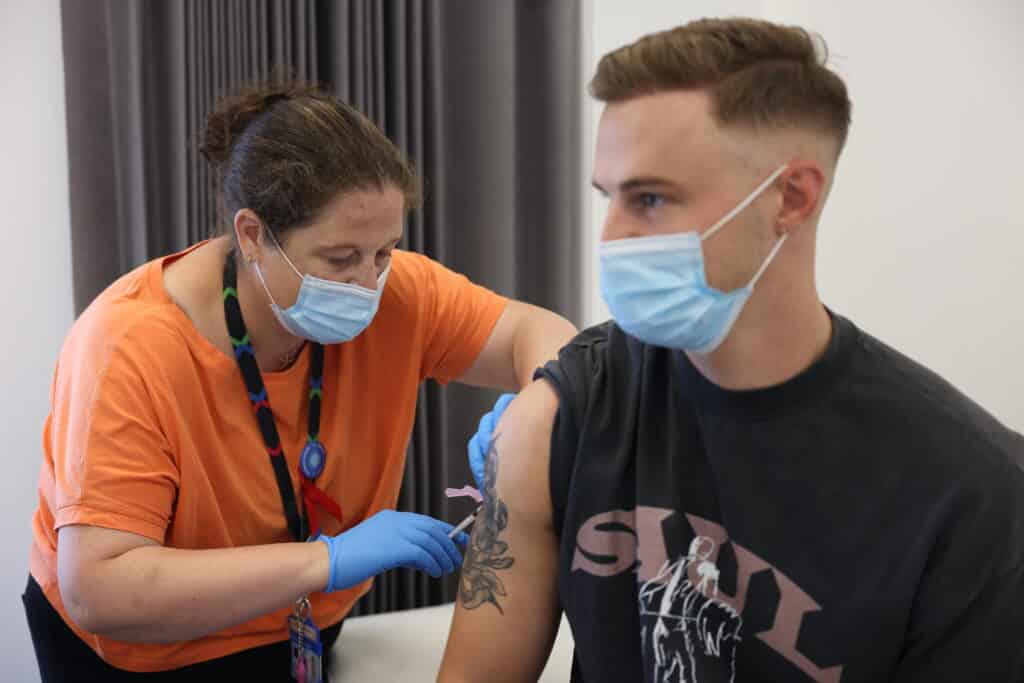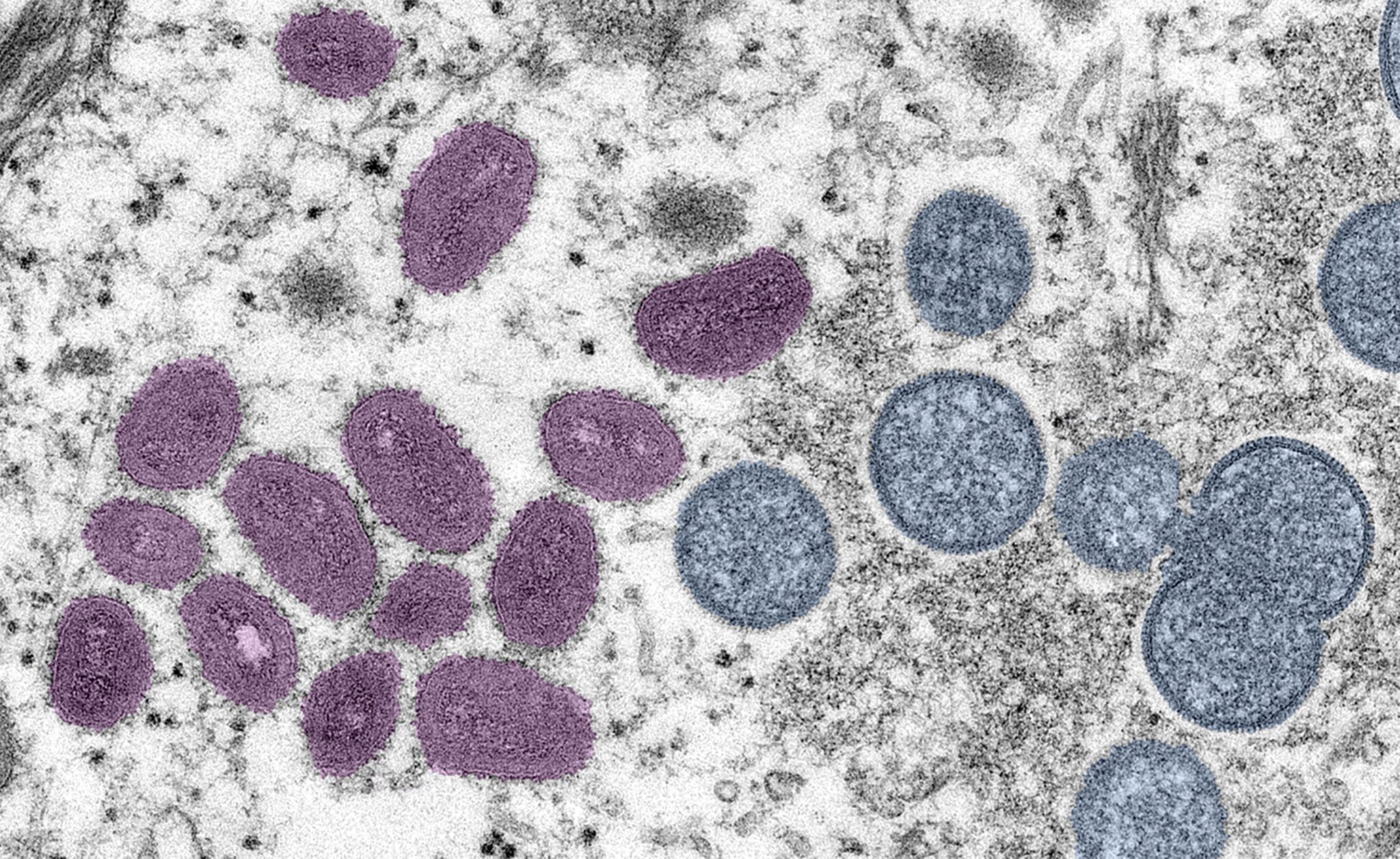Monkeypox, a once rare virus, has spread worldwide in recent months. (Smith Collection/Gado/Getty Images)
Single genital lesions on the anus and mouth have been identified as symptoms of monkeypox as researchers better understand the virus.
On Monday (25 July), the UK Health Security Agency (UKHSA) updated its definition of monkeypox to say symptoms now include a lesion or lesions on the genitals, anus and mouth.
Anal or rectal pain and bleeding, known as proctitis, has also been added to the list.
Common symptoms of monkeypox are relatively mild but can be painful and debilitating. On average, symptoms appear within six to 13 days of exposure and last two to four weeks.
The hallmark sign of monkeypox is a rash found on a patient’s face, hands, feet, mouth or genital area.
Over the course of five to seven days, the rash forms flat bumps that later swell with puss. They soon scab over and fall off and, after two to four weeks, are no longer infectious.
Body aches, fevers, swollen lymph nodes and general exhaustion have also been reported.
The UKHSA said that those who contract monkeypox are advised to stay at home, with hospitalisation only needed in severe cases. No deaths have been recorded so far in the UK from monkeypox.
UKHSA clinical and emerging infections director Meera Chand said: “We continue to see new diagnoses of monkeypox, passed on primarily through close or sexual contact.

“We have updated our case definitions to reflect the clinical presentations that have been seen during this outbreak. It is important to recognise that just one or two genital or anal lesions or lesions in the mouth can be signs of monkeypox, especially if you have had a new sexual partner.
“If you think you have monkeypox stay at home and contact 111 or your local sexual health service for advice.
“There is still a need to be cautious, stay alert for symptoms. For many people, symptoms can be mild but for some people, hospital treatment may be required.”
The largest study on monkeypox to date, published in the New England Journal of Medicine on 21 June, found that one in 10 people had only a single lesion in the genital area. Fifteen per cent said they experienced anal and/or rectal pain.
Researchers stressed that as these symptoms bear a resemblance to some sexually transmitted infections, medical professionals must be careful not to misdiagnose. Monkeypox is not an STI, they said, and mistaking it for one will only slow down efforts to control the spread.
As of 21 July, there are 2,208 cases of monkeypox in the UK, according to the UKHSA. The vast majority have so far been observed in England, with 2,115 confirmed patients.
While data has suggested that the outbreak is slowing down in the UK, public health bosses stress that people shouldn’t put their guards down just yet.
On 23 July, the World Health Organisation (WHO) declared monkeypox a global health crisis.
Since May, monkeypox has been reported across 12 countries where the disease is not endemic. Although monkeypox can infect anyone, the majority of cases so far are among gay and bisexual men and men who have sex with men.
A WHO expert has warned that this might not be the case for that long, though. Monkeypox will very likely spread beyond the queer community in the future and may impact more vulnerable people, like young people and the elderly.
